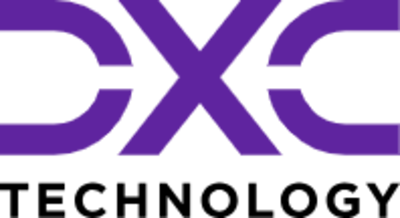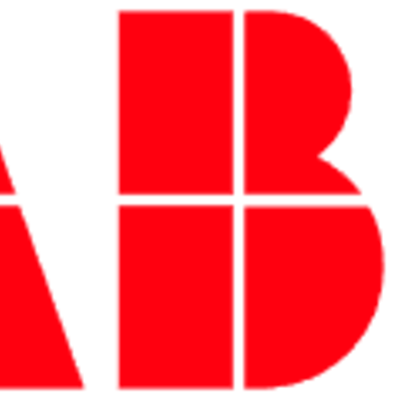Site Reliability Engineer
Platform Engineer

Featured DevOps Jobs
Handpicked top roles you don’t wanna miss.

Top Companies Hiring
Apply to high-impact roles at leading global tech companies.

Weekly DevOps Job Drops
Handpicked high-paying roles delivered weekly
Subscribe to our free weekly newsletter and stay ahead with top opportunities. 1,200+ Already joined.
Frequently Asked Questions:
Transitioning requires practical experience, cloud knowledge, and automation skills:
Learn cloud platforms: Start with AWS, Azure, or GCP fundamentals (VMs, storage, IAM, networking).
Pick Infrastructure as Code tools: Terraform, Ansible, or Pulumi to automate provisioning.
Containerization & orchestration: Docker and Kubernetes are essential for modern DevOps roles.
Hands-on projects: Build small applications, automate deployments, or contribute to open-source projects.
Certifications: Help validate your skills (AWS, Azure, GCP, Kubernetes).
Networking & community: Join DevOps communities, attend webinars, and follow blogs for real-world scenarios.
Guides and references:
Medium career guide: https://medium.com/@cubensquare/from-non-it-to-devops-a-guide-to-shifting-your-career-cda2c074bb57
AWS learning paths: https://aws.amazon.com/training/learning-paths/
Certifications demonstrate credibility and up-to-date skills:
AWS Certified DevOps Engineer – Professional: Deep understanding of CI/CD, monitoring, and automation (https://aws.amazon.com/certification/certified-devops-engineer-professional/)
Certified Kubernetes Administrator (CKA): Skills in production-grade Kubernetes clusters (https://www.coursera.org/articles/devops-certifications)
Docker Certified Associate (DCA): Validates Docker and containerization knowledge (https://www.coursera.org/articles/devops-certifications)
Terraform Associate: Demonstrates Infrastructure as Code proficiency (https://www.hashicorp.com/certification/terraform-associate)
Tip: Combine certifications with hands-on projects; recruiters value demonstrated results more than just credentials.
Salaries in the U.S. vary widely based on experience, role, location, and company size:
Platform Engineer: $95,000 – $140,000 per year — https://www.glassdoor.com/Salaries/platform-engineer-salary-SRCH_KO0,17.htm
Senior Platform Engineer: $140,000 – $200,000 per year — https://www.glassdoor.com/Salaries/senior-platform-engineer-salary-SRCH_KO0,26.htm
DevOps Engineer (general): $100,000 – $170,000 per year — https://www.indeed.com/career/devops-engineer/salaries
Remote/global roles: Specialized cloud/SRE roles can pay 20–50% higher, depending on the company and expertise.
Reference: Glassdoor U.S., Indeed U.S.
Tip: Consider benefits, stock options, bonuses, and opportunities for professional growth alongside base salary.
Core technical and soft skills include:
CI/CD pipelines: Jenkins, GitHub Actions, GitLab CI/CD, CircleCI
Infrastructure as Code: Terraform, Ansible, CloudFormation
Containerization & orchestration: Docker, Kubernetes, Helm
Monitoring & observability: Prometheus, Grafana, Datadog, CloudWatch
Incident response: On-call handling, root-cause analysis, postmortems
Cloud services: Compute, storage, networking, serverless, security best practices
Soft skills: effective communication, leadership, cost-awareness, and decision-making under pressure.
Reference: Google SRE Book — https://landing.google.com/sre/book.html
Typical experience expectations:
Junior/Mid-level: 1–3 years of DevOps or cloud experience with demonstrable automation or monitoring projects.
Senior/SRE/Platform Engineer: 3–5 years of relevant experience managing production systems, CI/CD pipelines, cloud deployments, and infrastructure automation.
Entry through portfolio: Strong projects, contributions to open-source, or lab simulations can sometimes substitute for formal experience.
Reference: DevOps Institute guide — https://devopsinstitute.com/blog/devops-career-paths-guide/
Many DevOps, SRE, and Platform Engineer roles include on-call rotations, monitoring, and incident handling. You can expect to:
Be part of a rotation team handling alerts 24/7 or during business hours depending on the organization.
Use monitoring and observability tools such as Prometheus, Grafana, Datadog, New Relic, or CloudWatch to quickly identify issues.
Participate in post-mortems and retrospectives after incidents to identify root causes and implement preventive measures.
Balance operational responsibilities with proactive system improvements, automation, and reliability work.
Guides on SRE and on-call expectations:
Google SRE Book: https://landing.google.com/sre/book.html
PagerDuty’s on-call guide: https://www.pagerduty.com/blog/the-ultimate-guide-to-on-call-for-sre-and-devops/
To stand out for DevOps, Cloud, SRE, and Platform roles, your portfolio and resume should:
Show measurable impact: Highlight projects with quantifiable results such as reduced deployment failures, increased uptime, or cost savings.
Include real projects: Contribute to open-source, cloud labs, or internal automation projects. Share GitHub links or cloud demo projects.
Document tools and tech used: Clearly mention CI/CD, IaC, Kubernetes, Docker, cloud platforms, monitoring tools, and security practices.
Present metrics: Example: “Implemented automated CI/CD pipelines reducing deployment time from 2 hours to 15 minutes”
Highlight certifications and training: Relevant ones include AWS Certified DevOps Engineer, CKA, Terraform Associate, or Docker DCA.
Include soft skills: Communication, teamwork, incident management, and leadership experience.
Examples of creating a strong DevOps portfolio:
Medium guide: https://medium.com/devopslinks/building-an-impressive-devops-portfolio-2023-5f6b6f0a1a6d
GitHub examples: https://github.com/topics/devops-projects
Career paths and growth opportunities often include:
Technical Leadership: Lead DevOps, SRE, or Platform teams, managing complex systems and mentoring engineers.
Cloud or Infrastructure Architect: Design and optimize enterprise-level cloud and infrastructure solutions.
Platform Owner/Engineering Manager: Oversee platform strategy, reliability, and scalability initiatives.
Reliability/Resilience Engineer: Specialize in high-availability systems, disaster recovery planning, and SRE practices.
Consulting/Advisory Roles: Provide expertise to multiple organizations on cloud migration, DevOps transformation, and SRE best practices.
Specialized Roles: Security-focused DevOps (DevSecOps), cost optimization specialists, or automation engineers.
Additional reading on career progression in DevOps/SRE:
DevOps Institute: https://devopsinstitute.com/blog/devops-career-paths-guide/
Google SRE career ladder: https://sre.google/workbook/career-paths/
Staying up-to-date with trending tools gives a competitive edge:
CI/CD: Jenkins, GitHub Actions, GitLab CI/CD, CircleCI
Cloud Platforms: AWS, Azure, GCP
Containerization & Orchestration: Docker, Kubernetes, Helm
Monitoring & Observability: Prometheus, Grafana, Datadog, CloudWatch
Infrastructure as Code: Terraform, Ansible, Pulumi, CloudFormation
Security/Compliance: HashiCorp Vault, AWS IAM, Snyk
References:
CNCF Cloud Native Landscape: https://landscape.cncf.io/
DevOps Tools Trends: https://www.atlassian.com/devops/tools
Preparation should focus on technical skills, problem-solving, and system design:
System Design & Architecture: Practice designing scalable, resilient, and highly available systems.
Practical Labs: Create pipelines, deploy apps to Kubernetes, or automate infrastructure using Terraform.
Scenario-based Questions: Expect questions on incident management, debugging failures, or optimizing deployments.
Behavioral & Leadership Skills: Communication, team collaboration, and conflict resolution matter.
References:
Interview Prep Guide: https://www.interviewbit.com/devops-interview-questions/
Google SRE Interview Tips: https://landing.google.com/sre/workbook/interviews/
Yes — especially for engineers with strong cloud, automation, and SRE skills:
Companies like Amazon, Microsoft, Google, Red Hat, HashiCorp frequently hire remote engineers.
Freelancing and contract-based DevOps roles are increasing on platforms like Toptal, Upwork, and Fiverr.
Remote roles often offer higher pay and exposure to global-scale systems.
References:
TopDevOpsJobs: https://www.topdevopsjobs.com
Continuous learning is critical:
Blogs & Newsletters: DevOps.com, The New Stack, AWS News Blog, HashiCorp Blog
Communities & Forums: Reddit r/devops, DevOps Subreddit, Stack Overflow
Conferences & Meetups: KubeCon, AWS re:Invent, DevOps Days, local meetups
Learning Platforms: Coursera, Udemy, A Cloud Guru
References:
DevOps.com: https://devops.com/
The New Stack: https://thenewstack.io/
When choosing a company, consider:
Engineering Culture: Look for continuous learning, mentorship, and knowledge sharing.
Tools & Tech Stack: Exposure to modern tools enhances skill growth.
On-call & Work-life Balance: Understand on-call rotations and incident responsibilities.
Career Path & Promotions: Check internal growth opportunities for SRE, Platform, or Cloud roles.
Compensation & Benefits: Base pay, bonuses, stock options, and professional development support.
References:DevOps Institute Culture Guide: https://devopsinstitute.com/blog/engineering-culture-matters/
Google SRE Career Ladder: https://sre.google/workbook/career-paths/









